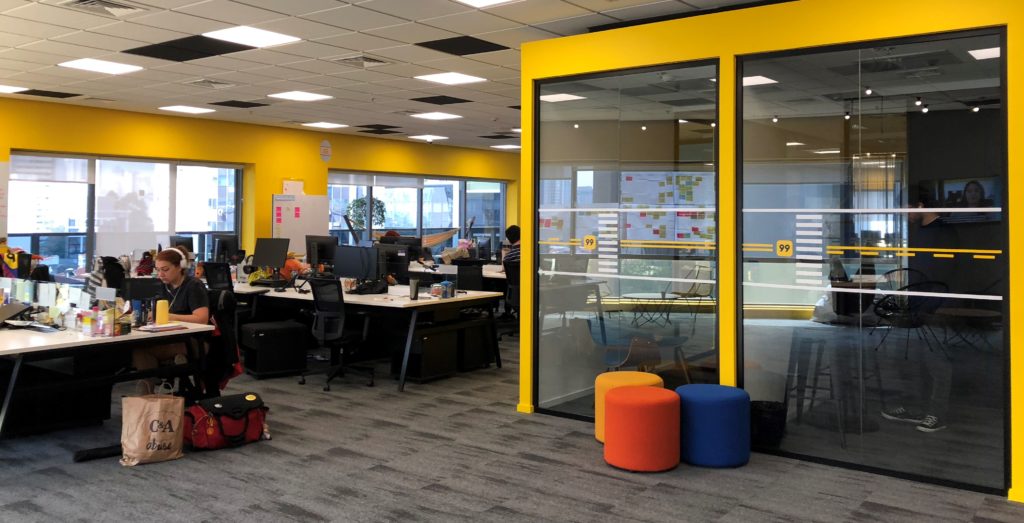A few years ago, I visited the Didi-99 headquarters in Sao Paolo. These two articles are the lessons learned. In Part 1, talked about how driver needs and services are an area that is particularly different in Brazil vs. China. Here are some other lessons.
Lesson #2: How Much to Localize is an Important Question for Ride Sharing
Uber, unfortunately, has become the gold standard for how not to go global as a ride-sharing company.
They rolled out their services around the world in a mostly standardized fashion, with the tech and management significantly centralized to San Francisco. That made sense as data technology and software scale and expand geographically very easily. And combining this with local data is a powerful approach. This has really worked for Facebook and Google globally.
But Uber got beat virtually everywhere by local ride-sharing companies. Ola won in India, Grab in SE Asia, Didi in China. And so on. It turns out ride-sharing can be a pretty local business. And having local. owner-managers can be a real strength. Plus, it’s not smart to roll into foreign countries and antagonize the government as a disruptor.
Didi, by and large, avoided the Uber approach by investing (along with Softbank) in local champions around the world. And since 2016, Uber has steadily retreated back to the USA while the Didi Alliance has become dominant in much of the world.
However, Didi did go international itself in a few locations. Notably in Brazil, Mexico, Australia and Japan. And ironically, it ended up going head-to-head with Uber in two of their largest remaining international markets: Brazil and Mexico.
So how will Didi go international directly?
I spoke with Davi Miyake Dos Santos (then Head of Strategy & Planning and General Manager) about this in Sao Paolo And then later with Benjamin Wang (then International Business Chief of Staff) at the Beijing headquarters. One of the perks of my writing / research / professor role is I get to meet smart people like Davi and Benjamin all the time.
My question was: How do you go global as a ride-sharing business?
- How much do you centralize to headquarters? Technology? Data? Product development? Management? Decision-making? Budgeting? What about ownership and incentives?
- How much do you localize in each geography? How much authority do you give to local management? Can staff in Sao Paolo launch new driver services on their own? Can they change code?
- And this is really a subset of the question: How do you go global as a local services platform business model? It’s a question faced by Meituan, Gojek, Grab, Trip, Expedia and many others.
Every multinational deals with these questions. But ride-sharing and local software-enabled platforms are a new type of business model. The answer is not obvious.
Thus far, I think this question has not been too much of an issue for Didi. They aren’t engaged in any fierce fights around the world (yet). Plus, data and users (drivers and riders) are local by definition. So that will naturally lead to a very local view of the Brazil market (thank god for big data). And certain things like capital-raising and R&D (new ride-sharing vehicles, autonomous vehicles) will make sense centralized in Beijing.
But what about analytics and customized products / services?
There is going to be a tendency to just take the China services (Luxe, Express, etc.) and then port those to Brazil. But that could leave you open to a disruptive local product.
Go-Jek did this in Indonesia by focusing their initial ride-sharing service on mopeds, and not cars. So localization of product development is a question. Can the Brazil team create entirely new services and pricing strategies in Brazil that we don’t see in China? Note: Jack Ma used a localization approach with free services to merchants to beat eBay in China.
Another question is management authority.
Can the local team build on their own or are lots of decisions run through Beijing? KFC famously gave Samuel Su free reign and lots of cash to build the KFC business in China – and he totally changed the menu. McDonalds, in contrast, held a pretty tight leash on their China operations and did not want the look or menu changed significantly. Today, KFC dwarfs McDonalds in China.
And there is the big question of management ownership and incentives.
My standard question when talking to multinationals operating in China is: where do the decision-makers and / or owners live? Where do their kids go to school?
If the decision-makers haven’t moved their lives and their families to China, I discount them. You just can’t dabble or commute into a developing economy, especially hyper-competitive China. Back when Didi was fighting Uber for China, the number I kept pointing to was 4,000. Didi had around 4,000 staff on the ground and living permanently in China. Uber had like 400. And Travis was running the show from San Francisco.
So that’s lesson #2. How much to localize?
Lesson #3: Safety and Growth Are the Big Priorities in Brazil
Safety in ride-sharing was a huge priority in China at the time. But it has long been an issue in Brazil, Mexico and much of Latin America. Of the world’s 50 most dangerous cities, around 40 are in Latin America. And like 25 of them are in Brazil.
Safety for riders and drivers is an ongoing issue in Brazil. Fortunately, ride-sharing should soon be the safest form of transportation. It is not anonymous. Everything can be tracked. And you can do real-time monitoring. In Brazil, ride-sharing will certainly be safer than walking and taking trains, buses, and taxis. Davi mentioned safety was their big priority in Brazil.
Organic growth is the other big priority in Brazilian ride-sharing. And that is a difference with China, where everyone is already signed-up and public transportation is pretty great. Brazil is hugely underserved in terms of quality transportation. Davi mentioned Didi is expanding into hundreds of municipalities in Brazil. There is a big growth runway in Brazil.
Keep in mind, Brazil is a really big country. A lot of it is difficult to access (rainforests, mountains, etc.). And car ownership is not ubiquitous. In this, Brazil is much more similar to China and Southeast Asia than the USA. Both have huge geographies where many (especially the young) have never owned a car. In addition to geographic expansion, there may be a real opportunity to leapfrog car ownership.
***
Ok. Those are the my 3 main lessons.
Cheers and thanks for reading – Jeff
I am a consultant and keynote speaker on how to increase digital growth and strengthen digital AI moats.
I am the founder of TechMoat Consulting, a consulting firm specialized in how to increase digital growth and strengthen digital AI moats. Get in touch here.
I write about digital growth and digital AI strategy. With 3 best selling books and +2.9M followers on LinkedIn. You can read my writing at the free email below.
Or read my Moats and Marathons book series, a framework for building and measuring competitive advantages in digital businesses.
Note: This content (articles, podcasts, website info) is not investment advice. The information and opinions from me and any guests may be incorrect. The numbers and information may be wrong. The views expressed may no longer be relevant or accurate. Investing is risky. Do your own research.


